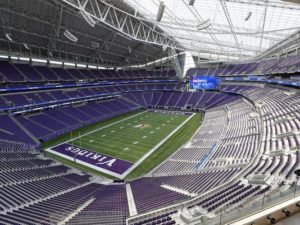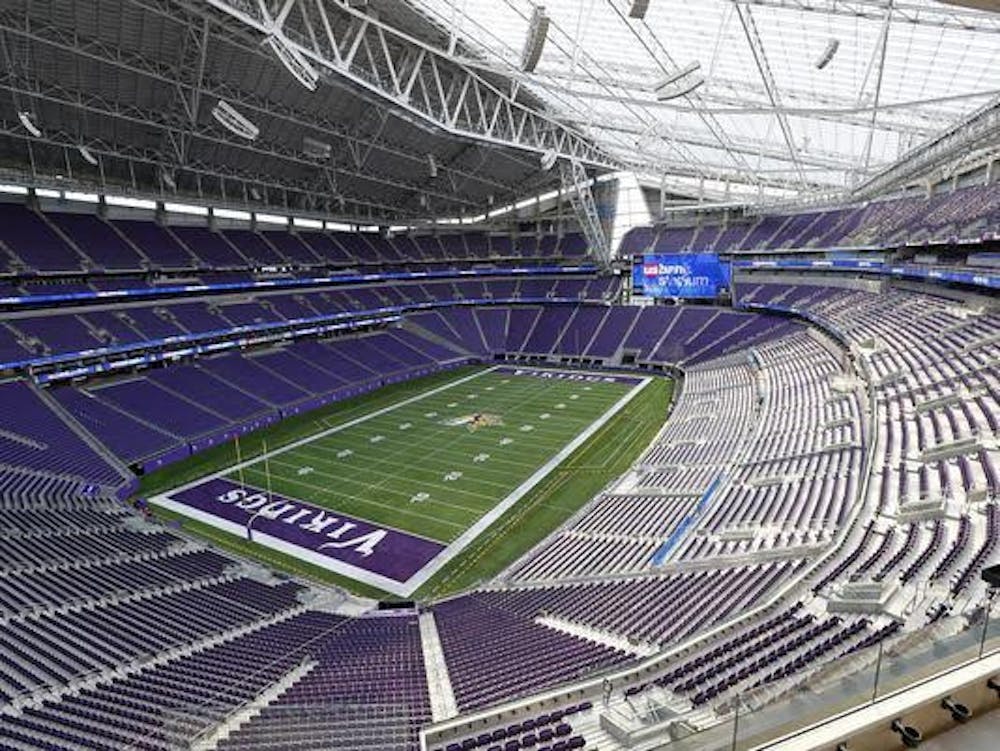By Kiana Stockwell
Correspondent
All eyes were on Minneapolis, Minnesota on Feb. 4 as the Philadelphia Eagles and New England Patriots went head-to-head in Super Bowl LII. The game drew an enormous crowd of football fans, and unbeknownst to many, a large number of human traffickers as well.

“The Super Bowl is the greatest show on Earth, but it also has an ugly underbelly,” said former Texas Attorney General Greg Abbot, according to USA Today. “It’s commonly known as the single largest human trafficking incident in the United States.”
The stadium’s massive crowds of tourists and spectators provide sufficient cover for human trafficking, prostitution and other illegal acts, according to The Huffington Post.
Minnesota is ranked 13th in the U.S. for highest amount of incidences of sex trafficking, according to The Root.
Clemmie Greenlee, a former sex trafficking victim, spoke about her experience at large events like the Super Bowl in The Huffington Post.
“If you don’t make that number (of sex customers), you’re going to dearly, dearly, severely pay for it,” Greenlee said. “I mean with beatings, I mean with over and over rapings.”
The Minnesota Bureau of Criminal Apprehension engaged in a “sting operation” to find and arrest sex buyers and traffickers in the days leading up to the Super Bowl. Undercover police took to social media, where sex trafficking often flies under the radar. Over 30 traffickers were arrested on probable cause for solicitation of a minor. Additionally, seven were arrested for sex trafficking or promoting prostitution, and 14 women were “rescued from trafficking situations,” according to The Star Tribune.
Lauren Martin, a representative from the University of Minnesota Robert J. Jones Urban Research and Outreach-Engagement Center, spoke about Minnesota’s human trafficking problem in an article by The Root.
“We are a wealthy state, predominantly white state; we’re a northern state; we have a lot of corporate headquarters here; we have an international airport,” Martin said. “We have a lot of conventions and things that draw people in.”
23 law enforcement agencies have been combing through hotels and online sex websites to target suspicious individuals in preparation for the game, according to Reuters.
According to CBS, overall arrests decreased in downtown Minneapolis as compared to last year’s number of 117. There were 75 arrests on the night of the game.
“We were able to (affect) a good number of arrests and rescue some people that in fact were being trafficked,” said John Elder, an officer with the Minneapolis Police Department, according to CBS.
Bradley Myles, the chief executive of Polaris, an anti-sex trafficking group, spoke to Reuters about the persistence of human trafficking in the U.S.
“All this is, is a one-day snapshot into what otherwise is a 365-day problem,” Myles said. “The same traffickers ... during the Super Bowl, they’re going to wake up in the morning on Monday and do the same thing.”
For resources or more information call the National Human Trafficking Hotline: 1-888-373-7888, or visit humantraffickinghotline.org.







